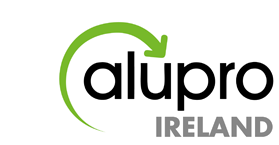News from the European Aluminium Foil Association: April, 2014
 A study undertaken by IFEU (The Institute for Energy and Environmental Research) to measure the relative environmental performance of two different sandwich packs – aluminium household foil and a rigid plastic lunchbox – found that aluminium foil performs very favourably in terms of environmental impact and should be considered a sustainable and convenient alternative product for packed lunches.
A study undertaken by IFEU (The Institute for Energy and Environmental Research) to measure the relative environmental performance of two different sandwich packs – aluminium household foil and a rigid plastic lunchbox – found that aluminium foil performs very favourably in terms of environmental impact and should be considered a sustainable and convenient alternative product for packed lunches.
A recent study at the Institute for Energy and Environmental Research (IFEU) in Germany, disproves the common consumer belief that a disposable product has a far greater environmental impact than a reusable solution and shows that aluminium household foil is a sustainable option that performs no worse – and in some cases even better – than the reusable plastic lunchbox.
Today consumers require the packaging for their homemade snacks to be convenient and eco-friendly, as well as providing proper protection. Until now aluminium foil’s supposed poorer environmental performance has made it an “off limits” material, even leading to bans of aluminium household foil in some kindergartens and schools in some European countries. The reusable rigid plastic box, on the other hand, is commonly judged as very environmental friendly. The IFEU assessments prove otherwise.
Aluminium foil is more environmental friendly than perceived
The new findings are based on a full life cycle assessment (LCA) commissioned by EAFA (European Aluminium Foil Association), which aimed to gain insight into the environmental impacts of both options for packing a sandwich: disposable aluminium household foil and a reusable rigid plastic box.
The base scenario compared the environmental impact of household foil including all elements of its production to a reusable plastic box washed in an energy efficient dishwasher. The plastic used to make the lunchbox was not included as it is used many times during the course of the lunchbox life. The IFEU study found conclusively, the impacts caused by cleaning a plastic lunchbox are equivalent or in some cases higher than the impacts of an appropriately sized piece of aluminium foil.
Different user behaviours and end-of-life parameters were also examined in a number of sensitivity scenarios: different foil thicknesses, number of sandwiches and different detergents. In all scenarios of the LCA, which was conducted according to ISO14044 and included a peer review, showed that the aluminium household foil performed equal to or better than the plastic box.
The IFEU project manager Frank Wellenreuther wrote in the recommendations section of the LCA: “From an environmental point of view the aluminium foil performs no worse than the plastic box to which it is compared. The environmental impacts due to the aluminium foil are lower than those of the plastic box in most relevant environmental impact categories and equal in the remaining ones… Therefore use of an appropriate amount of aluminium foil to pack one or two sandwiches on the European market (EU27+2) should be considered responsible.” The IFEU institute has conducted many LCAs, including for the German Federal Environment Agency.
Multi-talented aluminium foil: effective and sustainable protection
For consumers, these scientific findings are certainly very encouraging as, until now, aluminium foil was not readily considered as an environmentally friendly solution for this application. This LCA clearly demonstrates that aluminium foil is a responsible choice both as a sustainable option and in terms of environmental performance.
Like no other material, aluminium foil offers the packed sandwich protection from the damaging effects of light, air and unwanted foreign smells/aromas. Whether used for a sandwich during lunch break at the office or at school, or just a snack in-between, a sandwich wrapped in household foil is a convenient and responsible alternative. And, of course, the foil can be recovered or recycled after use.
More information, a summary of the conducted study, press releases can be found at www.sandwich.alufoil.org.


Got a question or comment?
Contact Us